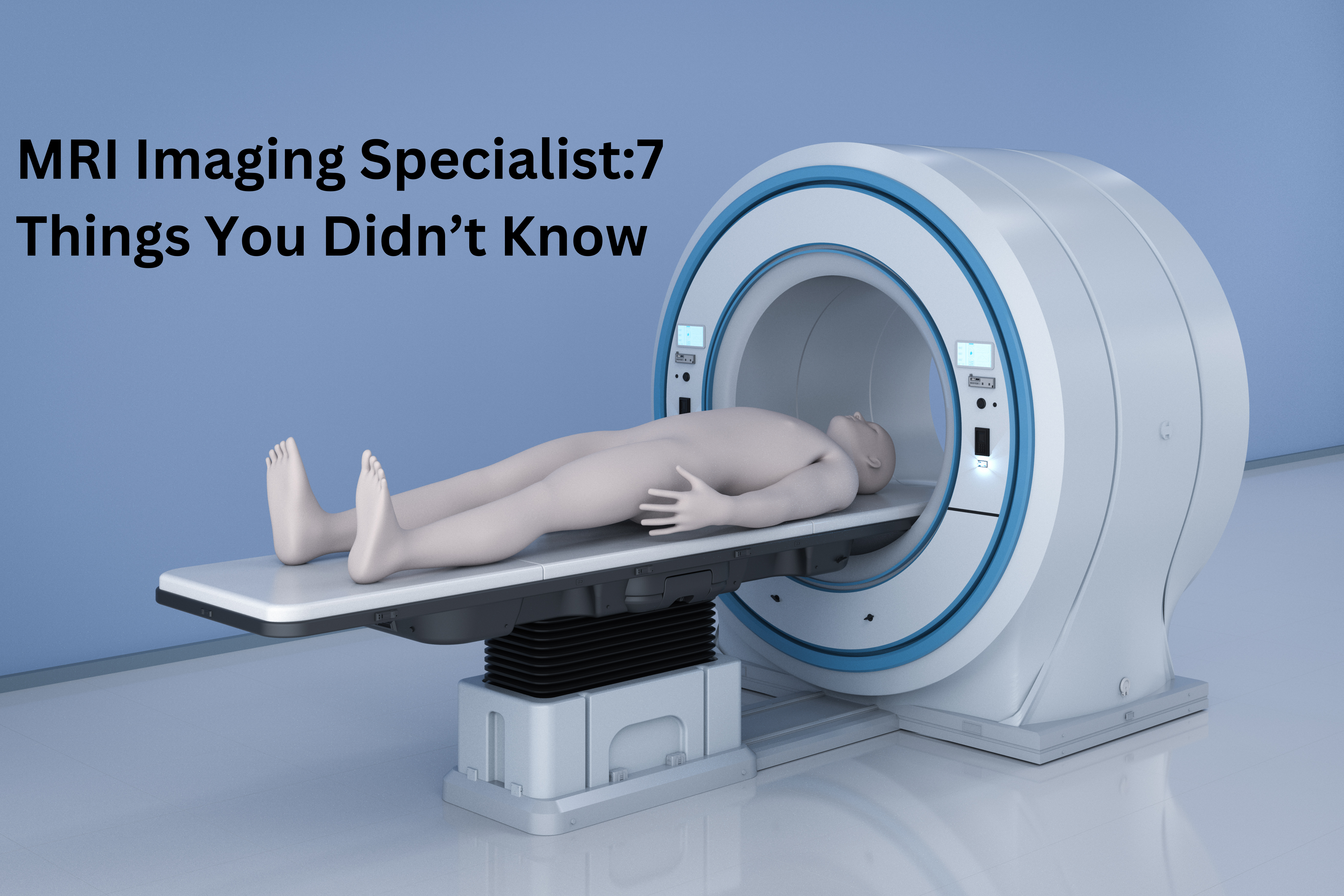MRI, Magnetic Resonance Imaging, is a groundbreaking technology that has transformed the way we diagnose and understand the inner workings of the human body. Beyond the impressive machinery, there’s a dedicated professional – the MRI Imaging Specialist. Their role is pivotal in ensuring patients get accurate results and a comfortable experience.
Duties of an MRI Imaging Specialist
Preparing for an MRI session isn’t just about lying down on a table. Behind the scenes, the MRI Imaging Specialist is hard at work.
- Preparation for Imaging Procedures Preparing a patient for their MRI scan involves more than just ensuring they’re comfortable. The specialist ensures that the patient has no metallic objects and provides them with necessary safety information.
- Operating MRI Machines It’s not just about pushing buttons. Operating an MRI machine requires a deep understanding of the technology to capture the clearest images.
- Interpreting and Reporting Results Post the scan, the specialist reviews the images, ensuring clarity and precision, and forwards them to the concerned doctor.
Training and Qualifications
Being at the forefront of medical imaging demands dedication and expertise.
- Educational Requirements A bachelor’s degree in radiologic technology or a related field is the first step. Specialized courses in MRI technology offer hands-on training.
- Licensing and Certification After education, certification from recognized bodies like the American Registry of Radiologic Technologists (ARRT) is essential.
Career Path and Growth
The field of MRI imaging is ever-evolving, offering myriad opportunities.
- Starting as an Entry-Level Specialist Fresh graduates usually start in hospitals or imaging centers, gaining practical exposure.
- Advancements and Promotions With experience and continued education, specialists can ascend to supervisory or managerial roles.
Comparing MRI Imaging with Other Techniques
Every imaging method has its unique strengths.
- MRI vs. X-ray While X-rays are great for bones, MRIs provide detailed images of soft tissues.
- MRI vs. CT Scan CT scans use X-rays, while MRIs use magnetic fields. MRIs are often preferred for brain, joints, and spine imaging.
Safety Protocols in MRI Imaging
Safety is paramount in medical procedures.
- Ensuring Patient Safety From screening patients for metallic implants to ensuring they’re calm and relaxed, specialists prioritize safety above all.
- Handling and Preventing Complications In rare cases, complications can arise. A well-trained specialist can swiftly manage and mitigate these.
Benefits of Seeing an MRI Imaging Specialist
Visiting an expert has its distinct advantages.
- Accurate Diagnosis MRIs can detect issues that might be invisible in other imaging techniques.
- Non-Invasive Procedure Unlike some diagnostics, MRIs are non-invasive, offering patients a stress-free experience.
MRI Imaging Specialist: Real-Life Experiences
Jane Doe, a seasoned MRI Imaging Specialist from Chicago, recalls a memorable case. “A young athlete came in with persistent knee pain. Traditional X-rays showed nothing. An MRI revealed a minute tear in a ligament. Early detection prevented severe complications.”
FAQs
How long does an MRI session typically last?
It varies depending on the area being imaged but usually lasts between 20 to 60 minutes.
Is MRI imaging safe?
Yes, MRIs don’t use radiation and are generally considered safe. However, patients with certain implants or devices should inform the specialist beforehand.
Can pregnant women undergo MRI?
It’s generally considered safe during pregnancy, but always consult with your doctor first.
What’s the average salary of an MRI Imaging Specialist?
While it varies by location and experience, the average salary in the U.S. is approximately $70,000 per year.
How often do MRI machines need maintenance?
Regular maintenance, usually every 3-6 months, is vital to ensure the machine’s optimal performance.
Why do MRI machines make loud noises?
The noises are due to powerful magnets and electric currents interacting. Patients are usually provided with earplugs.
Conclusion
MRI Imaging Specialists are the unsung heroes in the world of diagnostics. Their expertise ensures that we receive accurate, timely, and safe imaging results, guiding us on our health journeys.

